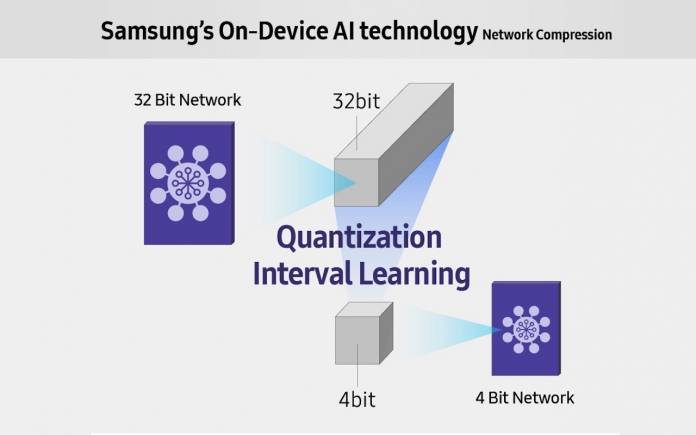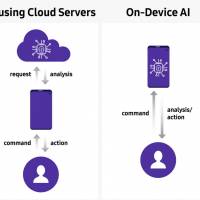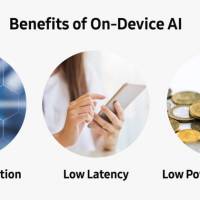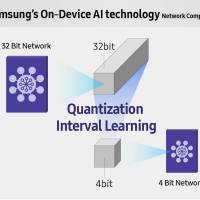
The future of AI is secured although it needs a lot of work. Artificial Intelligence is here to stay. It only needs further innovations and development. Recently introduced by Samsung is an On-Device AI processing technology that knows data intervals that help achieve “learning”. This NPU solution brings ‘Quantization1 Interval Learning’ (QIL) for data accuracy, in-server deep learning, and more powerful AI core technologies. This technology for on-device AI uses a fewer transistor and less power so the device doesn’t consume much.
Samsung’s latest NPU technology will make on-device AI more efficient and faster. It doesn’t require much space but accuracy is guaranteed even on 4-bit neural networks. What it does is use fewer bits so number computations are reduced. It’s also 8x faster but the number of transistors is reduced from 40x to 120x.
Even if the NPUs require less power and are faster, they can still do regular familiar tasks like biometric authentication and object recognition. Biometrics include face, iris, and fingerprint. What’s good about this NPU is that allows those tasks to be done right on the device–no need to go on the cloud.
Compared to cloud-based AI, on-device AI can be more helpful. It allows usage of less power and latency. It’s low power, therefore, also low cost. No need to also pay for more data because you don’t have to go online all the time.
Samsung predicts the NPU solution can be used in more virtual reality efforts or self-driving cars. Those activities that require accurate object recognition may take advantage of the new mobile chipset from the South Korean tech giant. Before this On-Device AI technology, Samsung has also introduced the Exynos 9 (9820) with proprietary Samsung NPU. It’s the first step to allowing independent AI computations.
The On-Device AI technology can reduce cloud construction cost. AI operations are done on its own and are quick and more stable. Here’s what Samsung Advanced Institute of Technology (SAIT)’s Vice President and head of Computer Vision Lab Chang-Kyu Choi said: “Ultimately, in the future, we will live in a world where all devices and sensor-based technologies are powered by AI. Samsung’s On-Device AI technologies are lower-power, higher-speed solutions for deep learning that will pave the way to this future. They are set to expand the memory, processor and sensor market, as well as other next-generation system semiconductor markets.”












